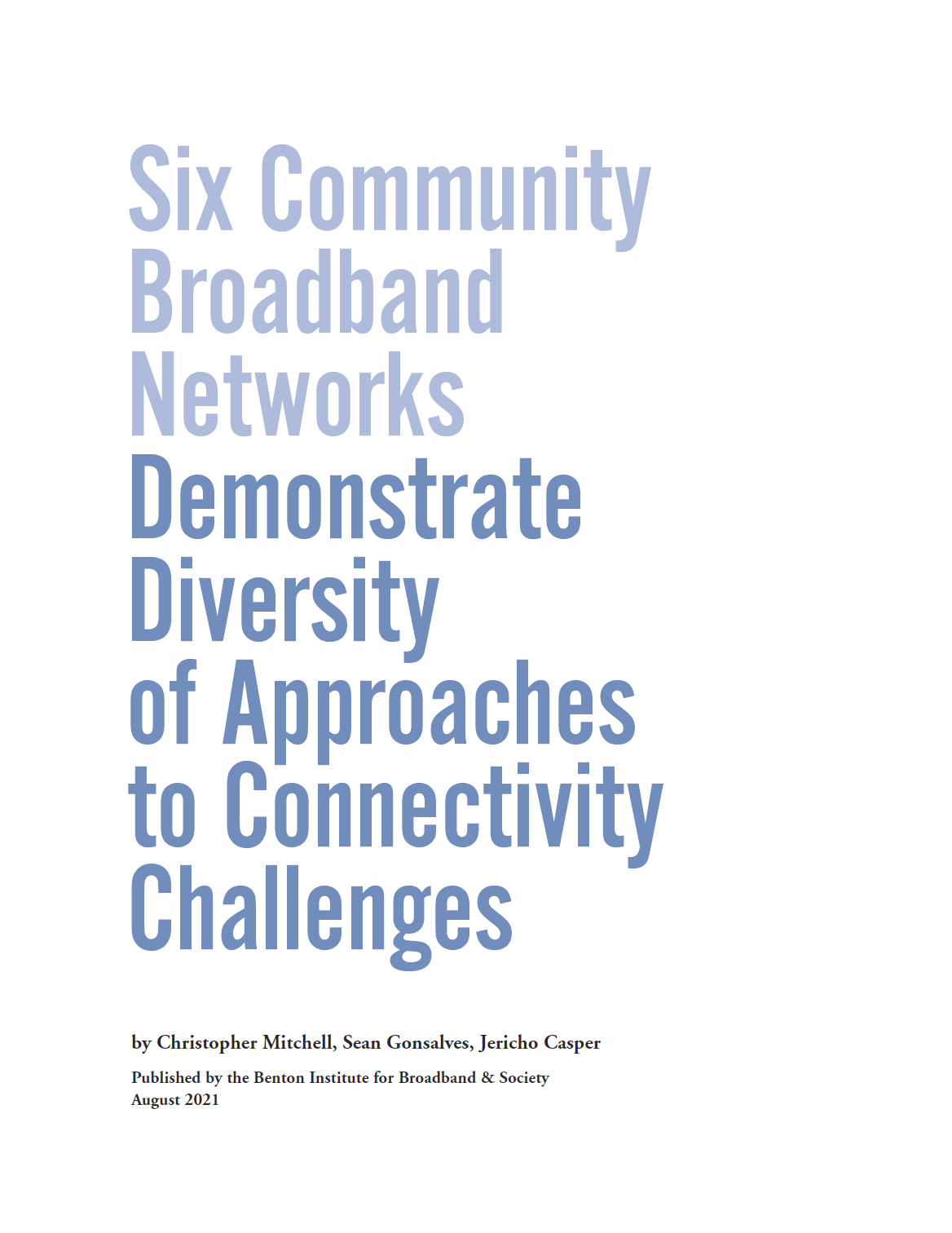Jericho Casper
Investment In Public Middle-Mile Infrastructure Is Imminent
Between the US Treasury clarifying that American Rescue Plan (ARP) funds are eligible to be spent on middle-mile infrastructure and the Senate infrastructure bill's proposed $1 billion grant program to support the deployment of middle-mile networks, federal assistance aiming to improve middle-mile access is imminent. Investing in public middle-mile infrastructure can be essential to create competition in broken markets.
Jamestown to build citywide municipal fiber network using American Rescue Plan funds
Jamestown plans to construct a citywide municipal fiber network using American Rescue Plan funds, the first city in the state of New York to do so. The city is currently working with EntryPoint Networks on a feasibility study to estimate the overall cost of the project, as well as surveying residential interest in building a municipally owned open-access broadband network in Jamestown. Under the open-access network model Jamestown is pursuing, the city would own and maintain all network infrastructure, which the city would then lease to third-party internet service providers (ISPs) to compe
Six Community Broadband Networks
One might think this is the moment for community broadband networks. The truth is, locally-directed networks have been serving their communities for a long, long time. In discussing his administration’s plans for broadband, President Joe Biden noted that municipal and cooperative networks should be favored because these providers face less pressure to turn profits and are more committed to serving entire communities.
One might think this is the moment for community broadband networks. The truth is, locally-directed networks have been serving their communities for a long, long time.

Partnerships Foster Fiber Hotbed in Southwest New Hampshire
The southwest corner of New Hampshire will be blanketed with fiber-to-the-home (FTTH) networks over the next two years, as 16 communities are drawing up plans to enter into public-private partnerships to boost high-speed Internet access in the state. According to New Hampshire’s Southwest Region Planning Commission (SWRPC), six more cities have also issued warrant articles indicating their interest in partnering with a private In
Washington State Removes All Barriers to Municipal Broadband
On May 13, Gov Jay Inslee (D-WA) signed the Public Broadband Act (H.B. 1336), removing all restrictions on public broadband in the state of Washington, according to the bill’s primary sponsor, WA State Rep Drew Hansen (D-23). This critical leap forward in Washington drops the number of states with laws restricting community broadband to 17. The bill grants public entities previously restricted by statute from offering retail telecommunications services the unrestricted authority to provide Internet services to end-users.
Washington State Legislature Sending Governor Competing Bills to Remove Municipal Network Barriers
The Washington state legislature has voted to end limits on municipal broadband, and the bill lifting those restrictions now awaits the signature of Gov Jay Inslee (D-WA). The state Senate passed the bill (HB 1336) April 11 in a 27-22 vote, and the state House passed it in Feb. There's still one complication. A second bill (SB 5383) that would do much less to eliminate barriers to municipal broadband solutions passed the House on April 11 and had previously passed the Senate. The two competing bills have been sent to the state governor and it is expected one will be vetoed.
Pending Bills In WA State Legislature Aim To Allow Public Utility Districts to Partake in Retail Broadband Market
In Jan, bills aiming to advance broadband connectivity by allowing public entities to participate in the retail broadband market were presented in the House and Senate of the Washington State Legislature. The two bills have both cleared their respective chambers, and are waiting to be heard in committees of the opposite legislative chamber. Both bills aim to grant public entities, such as Public Utility Districts (PUDs) and ports, the authority to operate as Internet Service Providers (ISPs).
The FCC’s Approach to Small Cells Strips Municipalities of Rights, Claim NATOA Panelists
Wireless infrastructure deployment, particularly for small cell or distributed antenna systems, promise smart city innovation abilities. But this rollout is likely to be stymied until resolution of disputes between industry and municipalities. Local officials are upset that federal intervention – by Congress and by the Federal Communications Commission – is hampering their ability to govern their own rights-of-way.

